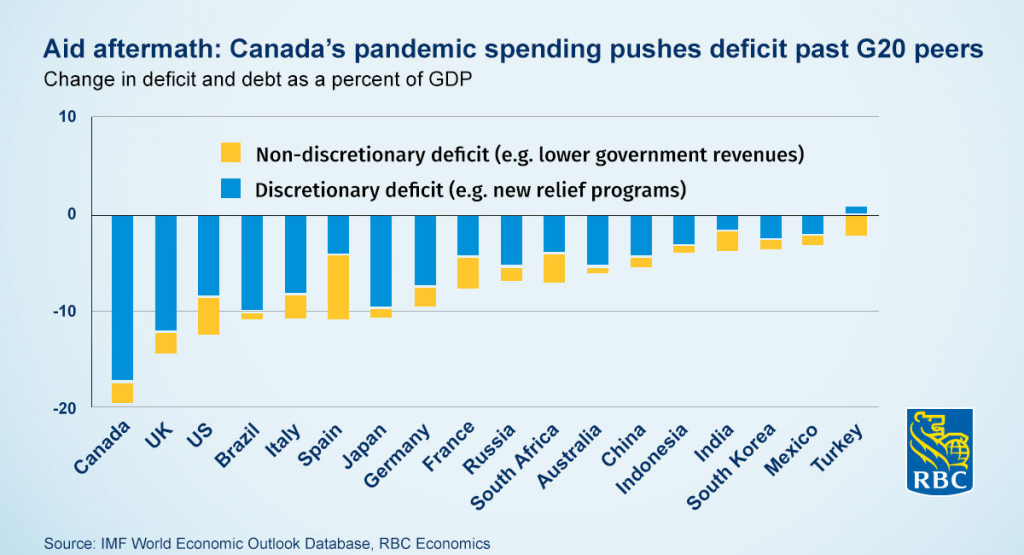October 22, 2020 | WFW

When Westjet pulled the plug on Atlantic Canada some days ago, I was moved to post this on a local chat board: ‘Bubbles have consequences…’
The response was predictable. “Garth doesn’t get it,” and “No, wrong. Pandemics have consequences”, were typical replies. And so the virus continues to divide us.
As a reminder, my choice has been to stay on the east coast during the last few months of Covid. (Anyway, my office in a Bay Street bank tower has been closed since March.) The four Maritime provinces created a bubble in July, sealing the borders and requiring quarantines for any interlopers. Besides the airline surprise, there have been two notable results:
(a) No virus. Well, hardly none. There are but five active cases in NS (these people travelled to some germy place like Toronto, now isolating), and no new daily cases for a while. Nobody’s really sick. Nobody’s in hospital. Nothing is closed.
(b) Real estate is nuts. Prices up 40%. Multiple bids. But most buyers aren’t locals. They’re Ontario refugees. And all the action is virtual. No showings. Nobody’s ever seen this.
So while my fancy Toronto portfolio-manager, hot-shot, master-of-the-universe financial guru colleagues have been working out of their spare bedrooms and breakfast nooks, my little band of compatriots has been ensconced where they should be. At work. In their offices. Collaborating. Fully dressed. Connected to the Big Pipe. WFW. Here’s one now…
The condo update this week on this pathetic blog led to a discussion about working from home. Seems a lot of people never want to return to the office, never commute, never be physically accountable nor forced to organize their lives the way they used to. By removing the walls between ‘work’ and ‘home’ they get to play with the dog (or kids), shop, houseclean, exercise or wash their socks in between Zoom meetings, data entry, email frenzy and working on projects. Proponents say this is the way of the future. That traditional workplaces are dead. That work-life balance is the No.1 thing people want. And finally the virus has delivered it.
Others (including crusty employers like moi) say this is bunk. WFH is a complete risk for most organizations and employees. Productivity falls. Communications falters. Synergy fizzles. Mistakes multiple. Ideas wither. Besides, any worker not needed in the workplace can eventually be replaced by either AI or some dude in Manila making one-tenth the wages who doesn’t have a giant mortgage in Surrey. Out of sight, out of mind. There’s a reason this phrase endures.
Anyway, don’t take it from a paleo like me. Look at the evidence. Covid is murdering the work ethic while turning people into stressed-out basket cases. Here’s a survey from recruitment firm Hays Canada showing many employees are reeling from the deleterious effects of WFH, including isolation, lack of support, loneliness and the feeling of an increased workload when the barriers between employment and personal time are erased.
While a majority of employers are confident about the future, 49% of their employees are seriously contemplating quitting. In Ontario that rises to 52% In Quebec, 54%. And while over eight in ten WFH folks said they were content earlier this year, that has now plunged by 20%. “COVID-19 has left everyone exhausted and while many businesses are improving, staff are waving a white flag,” says the company.
In the States, similar findings. In a survey, The Martec Group found this: “a significant decline in mental health across all industries, seniority levels, and demographics. Job satisfaction, job motivation, and company satisfaction were also negatively affected.”
A minority of 16% like WFH. The rest say they hate it, and resent the employer for shutting the workplace. Before the virus hit, two-thirds of people believed they were in good mental health. After working from home for a few months, that dipped to 28%. Job satisfaction and motivation also crashed – as here. A third said work-life balance got better The rest moaned, ‘lemme outta here’…
Well, Covid may have changed a lot of things. But it hasn’t changed human nature. People need, want and crave other people. That’s why workplaces developed, cities formed and urbanization has been the most prevalent trend of the last century. This is why the epicentre of societies has always been the downtown core, not the Wal-Mart in Richmond Hill. It’s why the gleaming towers are there. The best transit infrastructure. The bars, museums, clubs, galleries, restaurants, high-end retail, buskers, protests and shoe-shine guys.
So, WFH on a large scale will end. So will the pandemic. Both are temporary. Just like the silliness of buying a house two hours away because you’ll never commute again. Or competing for a listing four provinces away because the pictures look romantic.
Please regain your sanity. Go back to the office. And don’t move here. We’re busy working.
$ $ $
By the way, have you seen this tally of government virus spending from the economists at RBC? Yup. Pooched.

STAY INFORMED! Receive our Weekly Recap of thought provoking articles, podcasts, and radio delivered to your inbox for FREE! Sign up here for the HoweStreet.com Weekly Recap.
Garth Turner October 22nd, 2020
Posted In: The Greater Fool











